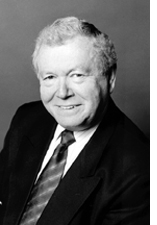By Dow Marmur

JERUSALEM –My wife and I returned a few days ago from London and Toronto (which explains why you haven’t heard from me for many weeks). The second most common topic of conversation with friends (after Brexit in England and Trump in Canada) was almost invariably peace between Israel and the Palestinians. Needless to say, I had nothing original to contribute to the discussions other than to suggest that the present situation may continue indefinitely.
An item in the August 22 issue of the bulletin of The Jewish Telegraphic Agency supports it. It reports on an opinion poll that indicates that neither Israelis nor Palestinians hold out much hope for peace. This may be due to wishful thinking on the part of those who fear that peace will demand too many concessions from their side, but it may also be a realistic assessment of the situation.
I heard many more discussions of the issue around dinner tables abroad than I hear such talk in Israel. Israelis have either learnt to live with the status quo or avoid the issue as a reflection of living in denial.
According to a friend whose knowledge is enormous and whose opinions I greatly value, Muslim Sharia law will never tolerate a Jewish state in this region. The Israeli insistence that Palestinians recognize Israel as a Jewish state precludes, therefore, peace. The various efforts by third parties, be it France or (most recently) Russia, to host peace negotiations seem to have less to do with realistic assessments than with grandstanding.
The same friend did, however, point to another possibility. In its vehement opposition to peace with Israel, the terrorist organization Hamas that rules Gaza and may soon take over the West Bank has hinted at an indefinite no-war tacit agreement with Israel as a realistic alternative. It’s obvious that, for all its belligerent rhetoric, Hamas doesn’t want war with Israel because it knows that it won’t win it other than in its anti-Israel propaganda.
Such a no-war arrangement, I’m given to understand, wouldn’t violate Sharia law, because it wouldn’t have the semblance of permanence. By all accounts, lines of communication between Israel and Hamas exist today. Israel’s Defense Minister may have implied it when he declared that there would be no negotiations with Hamas unless and until it releases the bodies of two Israeli soldiers who died in the Gaza war that it’s currently holding.
But does either side really want two states? I cannot speculate about the Palestinians, but in Israel a growing number of people – both Jews and Arabs – are thinking of a one-state solution, i.e. a kind of enhanced status quo. Israelis who oppose it are afraid that the Palestinians would soon become the majority in the land. Some may have changed their minds. Perhaps they fantasize that the Jews will dominate and the Palestinians will learn to live with it.
In the meantime, Israel is concentrating on improving relations with Arab states, notably Egypt and Saudi Arabia. Potentially that could also bring about peace between the Palestinians and Israel. But, as a recent New York Times editorial has it, “the danger is that these countries will find more value in mending ties with each other and stop there.” Another pointer to the status quo.
All things considered, therefore, settling for no-war may be the best way forward.
*
Rabbi Marmur is spiritual leader emeritus of Holy Blossom Temple in Toronto. Now residing in Israel, he may be contacted via dow.marmur@sdjewishworld.com. Comments intended for publication in the space below MUST be accompanied by the letter writer’s first and last name and by his/ her city and state of residence (city and country for those outside the United States.)
*